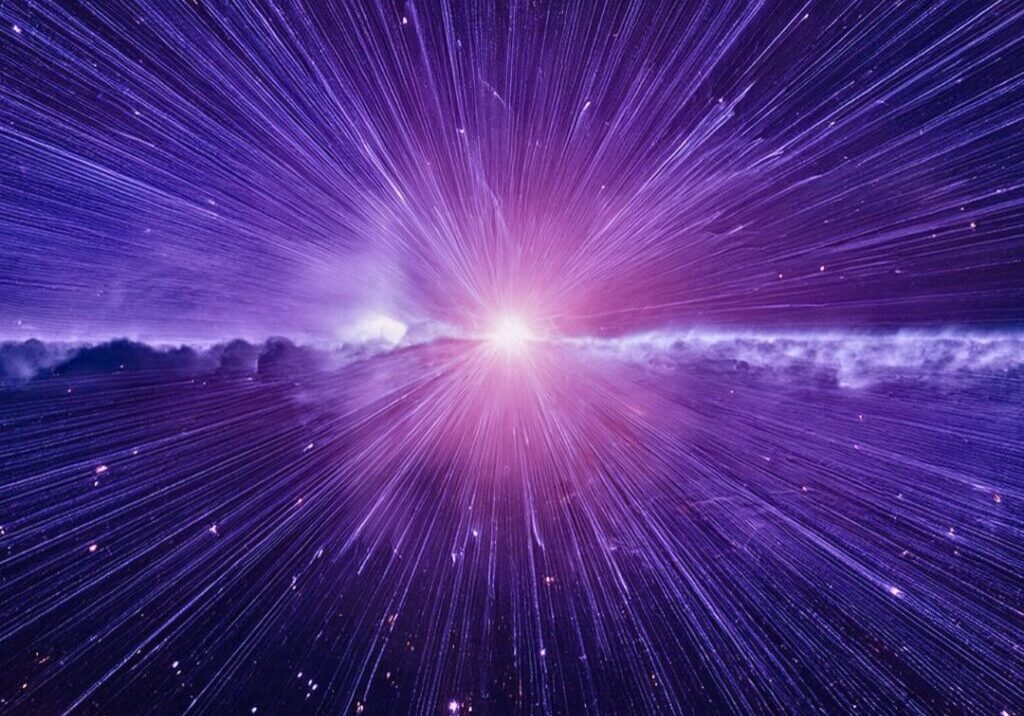Return to the Garden
 In 2020 the United States went through perhaps one of the most divisive presidential campaigns we ever had. It was often described by people on the left as an effort to reclaim the soul of our nation and for people on the right as an effort to continue to restore our Christian values. For people of faith, especially Christians/Catholics, 2020 was particularly challenging as we were pretty evenly split. Two terms that were often used to identify each side were “social justice Christians” and “anti-abortion Christians”. The election results showed a fairly even division among Catholics with both groups claiming that Christian theology was on their side. The irony is that when you cut through all the noise, their basic theological beliefs are the same. Whether your political views lean right or left the simple theological story is centered on redemption and salvation. Everything we do, every action we take, should be about helping us get to Heaven.
In 2020 the United States went through perhaps one of the most divisive presidential campaigns we ever had. It was often described by people on the left as an effort to reclaim the soul of our nation and for people on the right as an effort to continue to restore our Christian values. For people of faith, especially Christians/Catholics, 2020 was particularly challenging as we were pretty evenly split. Two terms that were often used to identify each side were “social justice Christians” and “anti-abortion Christians”. The election results showed a fairly even division among Catholics with both groups claiming that Christian theology was on their side. The irony is that when you cut through all the noise, their basic theological beliefs are the same. Whether your political views lean right or left the simple theological story is centered on redemption and salvation. Everything we do, every action we take, should be about helping us get to Heaven.
In the United States we have recently had two Speakers of the House of Representatives, Paul Ryan and Nancy Pelosi, who both claim the mantle of Catholicism. They both talk about how their Catholic faith has guided them in their political lives. They both believe that their positions are grounded and consistent with orthodox Catholic theology. Yet they are on opposite ends of the political sphere. Both easily find scripture readings to justify their positions. They both feel comfortable participating in the sacraments and rituals of the church. The chasm between their positions and beliefs is so vast that you have to ask how they both can claim the mantle of the same Catholic faith. They can’t both be right. Yet they can. While there appears to be a vast difference in their spiritual philosophies and political views, their simple core theology is the same,, a theology that has been consistent since the 5th century.
When I was younger I was taught that our Christian theology, our beliefs were unchanging and absolute. Sure you could dance around the peripherals. The church could first condemn then embrace science. We realized that the Earth was not created in 6 days and was not 6,000 years old. So we had to adjust our theology to accommodate scientific facts and learned experiences. But through it all, we had to maintain the core beliefs. Everything else aside, to be Christian meant adhering to a basic theology centered on separation, individual redemption and substitutionary atonement. If you walk into almost any Christian church you are confronted with the image of Jesus on the cross. Not the resurrected Jesus, or the incarnate Jesus, but the crucified Jesus. Our rituals are centered on worshiping at the foot of the cross instead of, as Jesus commanded in Matthew 16:24 “Take up your cross and follow me.”
We created a theology based on the idea that the Cross was necessary and required as an atonement for original sin. There are many different variations of the atonement theology. Dr. Elizabeth Johnson’s book, Creation and the Cross: The Mercy of God for a Planet in Peril, does an excellent job explaining those various theories. As she puts it, “people equated redemption with the pardon of sins said to be gained by Jesus’ death.” Johnson goes on to say, “It is hard to take cosmic redemption seriously if redemption is only about forgiveness of human sin. How did this come about?”
We pay lip service to the story of Jesus without truly understanding and living the message he gave us. We do so by believing in a theology that teaches the only real purpose of the incarnation was so Jesus could be crucified on the cross. Thereby satisfying the need of an angry God to be avenged because, somewhere many eons ago, we disobeyed him. Everything Jesus did or said was superfluous to him carrying out his predetermined role to be sacrificed on the cross. The Franciscan theologian, Blessed John Dun Scotus said “The Incarnation of the Son of God is the very reason for the whole Creation. To think that God would have given up such a task had Adam not sinned would be quite unreasonable! I say, therefore, that the fall was not the cause of Christ’s predestination and that if no one had fallen, neither the angel nor man in this hypothesis Christ would still have been predestined in the same way.”
Yet some 700 years later we are still operating under the same basic theological concept that we are only ‘here’ so we can get ‘there.’ It doesn’t matter if we are justice Catholics or anti-abortion Catholics or something in between, our faith story is all about how we get to Heaven. As I wrote in a previous article The Franciscan Spirituality and Environmental Justice, “St Thomas Aquinas believed that it is morally wrong to be cruel to animals, but his rationale was that such cruelty would make it easier for a person to develop a moral character in which they would be more inclined to express cruelty to human beings, which leads to greater separation from God. Aquinas believed that created things are made by God for the sole purpose of leading us to God.” We created our rituals and rules, our spiritual story to reflect the theology based on the idea that Jesus came to save us not to liberate us. We wait and pray for the day that Jesus will come again and make everything right. Despite what Jesus told us in John 14 “I will never leave you.” But it hasn’t always been this way. In his book We Make the Road by Walking: A Year-Long Quest for Spiritual Formation, Reorientation, and Activation Brian McLaren says:
Christianity began as a revolutionary nonviolent movement promoting a new kind of aliveness on the margins of society…It exposed a system based on domination, privilege, and violence and proclaimed in its place a vision of mutual service, mutual responsibility, and peaceable neighborliness…It was a peace movement, a love movement, a joy movement, a justice movement, an integrity movement, an aliveness movement.
We often hear and use the term “preferred option for the poor.” Like many expressions, it is a phrase that gets tossed around without a clear understanding of what it really means. Fr. Gustavo Gutierrez O.P., considered one of the founders of liberation theology, put it very succinctly when he said, “To make an option for the poor, is to make an option for Jesus.” How do we make an option for Jesus here if we believe Jesus is somewhere else? In an article in Catholic Moral Theology, “Should We Have a Preferential Option for the Rich?”, Dr. Charles Camosy, an Associate Professor of Theological and Social Ethics at Fordham University, wrote,
We should, of course, be concerned with the flourishing of the poor. But flourishing in this life is only of proximate value, isn’t it? Our ultimate goal is salvation and ultimate union with God.
I understand what Camosy is saying in this statement, that the preferred option for the poor is about helping the poor only insofar as it helps the poor get to Heaven. Drawing from the theology of Aquinas, he also suggests that by not showing a preferential option for the poor we are putting our own salvation in danger. So in effect, the option for the poor is not really about the poor and marginalized; it is about helping me get to Heaven. Gutierrez and others believed that we first had to understand the sinful structures that result in poverty and oppression. Then we have to actively participate in changing those structures. Gutierrez, in an interview with America magazine said, “I am firmly convinced that poverty—this sub-human condition in which the majority of humanity lives today—is more than a social issue. Poverty poses a major challenge to every Christian conscience and therefore to theology as well.”
We have our priorities backwards. We created a story which tells us that first our purpose is to be in right relationship with God. We developed a set of rituals, rites and prayers to guide us and a set of rules and regulations to follow. All so that each of us individually and separately can enter into a right relationship with God and thereby be saved. Then can we focus on our relationship with each other and only for the purpose of helping one another get to Heaven. As for the rest of creation, its only purpose is to serve us and help us get to Heaven. In reality the story of Jesus tells us that we first have to be in right relationship with all of God’s creation and in doing so, then and only then will we be in right relationship with God. In her book Holy Thursday Revolution,Beatrice Bruteau says, “It means we are to deepen our purity beyond ritual observances and not let any purity practice divide us or set us at odds with our fellows.” Think about that. If we are so concerned with our rituals and our purity codes that we are not hearing the cry of the poor and oppressed and not acting on those cries, what does that make us?
As faith activists we are engaged in the critical and absolute necessary work of rooting out and changing the systemic injustices so entrenched in all of our systems. We self-identify as “Matthew 25 Christians.” We join in prayer vigils, marches and rallies. Some of us risk our freedom and our health by risking arrest participating in acts of nonviolent civil disobedience and long hunger fasts. We challenge our elected officials and religious leaders to think of the poor and marginalized first. However while we are doing all this, we forget one of the basic concepts that Jesus taught us in Mark 2:22: “And no one puts new wine into old wineskins. For the wine would burst the wineskins, and the wine and the skins would both be lost.”
Join Patrick Carolan for our next Zoom conversation:
“How Does Our Sacred Story Affect Our Call To Justice?”
Thursday February 29th, 4pm ET – More information here
In the mid-20th century the German theologian, activist and mystic Dorthee Soelle wrote a number of books centered around a theology of political liberation. She developed a theology that offers a unique synthesis of spirituality and social justice. In her memoir, Against the Wind, she wrote a simple statement that tells the fundamental core of her belief system: “I believe in God who created the world not ready made”. This idea suggested that creation was not a static event but an ongoing ever changing process. The 13th century Franciscan mystic, Angela of Foligno, had a similar reflection when she said: “My soul in an excess of wonder cried out: ‘This world is pregnant with God!’” In his letter to the church in Rome, Paul writes, “From the beginning until now, the entire creation, as we know, has been groaning in one great act of giving birth” (Romans 8:22) As every woman who has been pregnant knows, pregnancy is not a static event that happens at conception and ends at birth. It is a process where a being is constantly changing, growing and evolving until a new creation is born.
In her book Political Theology, Soelle asks the question: “How do we move from a theology whose keywords are faith and understanding to one which focuses on faith and action?” As an activist and organizer I often ask the question: “What is our end game?” Like many others I would frequently use the expression to describe our ultimate end game as a “Return to the Garden.” As of late, I have come to realize that if this is our story and our ending is a return to Eden we will never succeed in bringing about the systemic change we so fervently believe in.
In her recent article “Social Justice without Cosmic Theology is Blind”, Ilia Delio, OSF writes “God liberates when God becomes fully alive in the human person and in creation. If we want a different world then we must become a different people.” In his book Catholicity and Emerging Personhood: A Contemporary Theological Anthropology, Daniel Horan, OFM challenges us to re-examine our sacred stories. He asks us to look at the story of Jesus and Christianity in a new light. Horan writes:
If we follow the particular trajectory of the Jesus story— (he) takes side with the victims of evolution and social injustice. Jesus the Immanuel (“the God with us”) died the death of an animal, and he died as a social outcast, his death being the result of a miscarriage of justice by religious authorities as well as political powers, and in the end scorned even by ordinary people. If God’s own being was present in the life story of Jesus, as Christians believe, then Christ is present from the bottom of the universe and up, emerging from within the realm of creation.
In a world that is filled with suffering and pain it is comforting to believe in a story, a theology, where God is always there, interceding on our behalf. We certainly need a comfortableness of hope that there is a light at the end of the tunnel. But history teaches us that change never happens while we stay in our comfort zone. It is only when we have the courage to enter the uncomfortable that we transform. If we really believe in justice and peace and want to bring about the necessary change, we have to start with an old/new understanding of our sacred story. Our end game goal has to change from returning to the garden to creating the garden. As Brian Mclaren so simply yet eloquently puts it: “Do we believe that Jesus came with an evacuation plan or a building plan.
 View print-friendly version
View print-friendly version
2 Comments
Related Posts

The Earth Groans, AI Grows: Who Guides the Flame?
In this critical moment of planetary history, where ecosystems collapse, artificial intelligence proliferates, and human meaning trembles on the edge of uncertainty, we are faced with a profound question: What kind…


Thanks for this…I wonder if Instead of returning to the garden or creating the garden, what is needed more than anything is for the garden to “grow.” In a sense the garden is HERE – it must be cultivated, composted, fallowed and planted in different times and situations. Sometimes we feel that we have particular seeds to plant, unaware that in our planting we are disturbing other seeds, that indeed need this “ disturbance” for their own germination and growth. The un settledness and uncomfortableness become the newness, often unexpected and unheralded, that bursts forth. This is the cross that we must not worship but embrace and carry and wield as a garden tool for the resurrection of the Gardener God. This newness, this resurrection, is the Gardener God, the Garden, the Growth – distinct but not separate – always more than what we can possibly envision or hope and a “more” that may completely surprise us!
We need a new story. Right now we’re between stories; the creation story, and the evolution story. In reality, they are one story, competing partial truths grounded in a common universal element whose story awaits the next Edison, Einstein or Teilhard to narrate for future generations. In my view, that mythic story, and only that story will qualify as truly “catholic” (small ‘c’) owing to its inter-spiritual inclusivity. Said Teilhard, “the age of nations has passed.” Ditto the age of religions. Sin and redemption are only one part of the story. Going to heaven is more intimately connected with how the heavens go, requiring a more science based (organic) explanation of the incarnation. Such will update the gospel message to fit the times, and serve to transport souls more efficiently toward the spiritualization (amorization) of consciousness globally. Says here, like the prophets and countless other visionaries, Jesus died less FOR our sins, than BECAUSE of them. And he’s still doing so, in the form of marginalized souls everywhere.